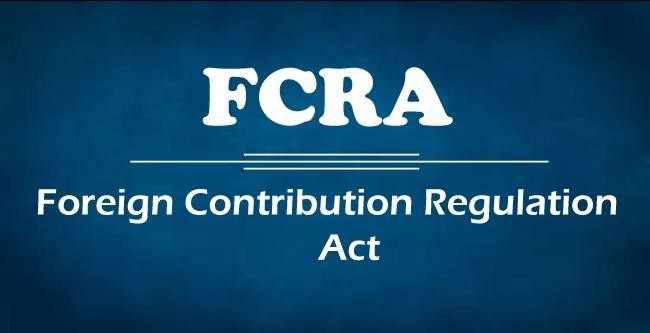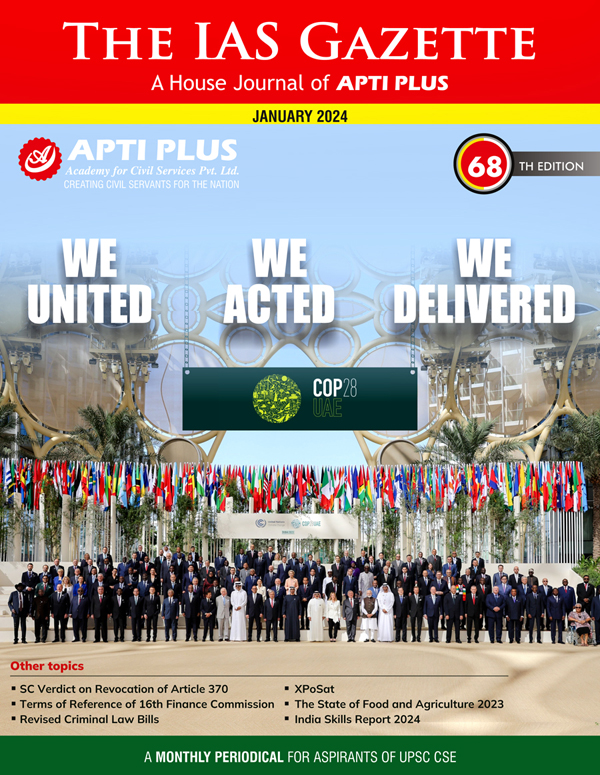Description

Copyright infringement not intended
Picture Courtesy: www.javatpoint.com
Context: The FCRA registration cancellations for prominent NGOs, including the Centre for Policy Research (CPR) and World Vision India (WVI), have raised questions about oversight, the impact on NGOs, and the reasons behind these cancellations.
Key Highlights
- The recent cancellation of Foreign Contribution Regulation Act, 2010 (FCRA) registrations for notable NGOs, including the Centre for Policy Research (CPR) and World Vision India (WVI), raises questions about oversight, the number of affected NGOs, and the reasons behind these cancellations.
Monitoring Authority
- The Union Ministry of Home Affairs (MHA) oversees FCRA implementation.
- Registration renewals for thousands of NGOs were due in 2020-2021.
- Due to the COVID-19 pandemic and 2020 FCRA amendments, the MHA provided relief, extending the deadline multiple times, with the latest being March 31, 2024.
FCRA Framework
- Enacted in 1976, replaced in 2010, and further amended in 2020.
- Regulates foreign donations to prevent adverse effects on India's internal security.
- Mandatory for associations, groups, or NGOs receiving foreign donations.
- Initial registration is valid for five years, and renewable upon compliance with norms.
- Registered groups can receive foreign contributions for social, educational, religious, economic, and cultural programs.
Vulnerability of the NGO Sector
- Over 20 lakh registered NGOs in India; FCRA-registered NGOs form less than 2%.
- A 2012 MHA report highlighted the sector's vulnerability to money laundering and terrorist financing risks.

Foreign Contribution Regulation Act
- The Foreign Contribution Regulation Act (FCRA) is a law that regulates the acceptance and utilization of foreign funds by certain individuals, associations or companies in India.
- The main objective of the FCRA is to ensure that foreign funds are not used for any activities that are detrimental to the national interest, such as affecting the sovereignty, integrity, security or public order of India.
- It aims to regulate and monitor the inflow and outflow of foreign funds in India. It seeks to prevent any misuse or diversion of foreign funds for activities that may harm India's national interest or security. It also seeks to ensure transparency and accountability in the receipt and utilization of foreign funds by various persons and organizations.
The FCRA was first enacted in 1976 and amended in 2010. The FCRA 2010 repealed the earlier act and introduced several changes, such as:
- Expanding the definition of foreign contribution to include currency, securities, articles and services received from a foreign source.
- Requiring prior permission or registration from the central government for receiving foreign contribution by any person having a definite cultural, economic, educational, religious or social programme.
- Prohibiting certain persons from receiving foreign contributions, such as election candidates, judges, journalists, public servants, members of the legislature, political parties and organizations of a political nature.
- Restricting the acceptance of foreign hospitality by specified persons without prior permission from the central government.
- Prohibiting the transfer of foreign contributions to any other person unless authorized by the central government.
- Restricting the utilization of foreign contributions for administrative purposes to not more than 50% of the contribution received in a financial year.
- Empowering the central government to prohibit receipt of foreign contributions or foreign hospitality by any person or organization in certain cases, such as affecting friendly relations with any foreign state or prejudicially affecting the public interest.
- Providing for inspection, search and seizure of accounts, records, articles or currency related to foreign contributions by designated authorities.
- Providing for confiscation and adjudication of articles or currency obtained in contravention of the act by competent authorities.
- Providing for appeal and revision against orders passed under the act by prescribed authorities.
- Providing for offences and penalties for violation of the provisions of the act, such as imprisonment of up to five years and fine of up to ten lakh rupees.
- Providing for compounding of certain offences by prescribed authorities.
- Providing for protection of action taken in good faith by any authority under the act.
|
The FCRA 2010 also introduced the Foreign Contribution (Regulation) Rules 2011, which prescribe the procedures and forms for registration, prior permission, intimation, maintenance of accounts, audit, disposal of assets, etc. related to foreign contribution. The rules also specify the documents and information required for obtaining registration or prior permission, such as Aadhaar number, PAN number, bank account details, annual reports, etc.
|
The FCRA 2010 and its rules have been amended several times since their enactment. Some of the notable amendments are:
- In 2012, the Foreign Contribution (Regulation) Amendment Rules 2012 were notified, which exempted statutory bodies from the operation of FCRA 2010 and allowed them to receive foreign funds without prior permission or registration.
- In 2015, the Foreign Contribution (Regulation) Amendment Rules 2015 were notified, which reduced the administrative expenses limit from 50% to 25% of the foreign contribution received in a financial year.
- In 2019, the Foreign Contribution (Regulation) Amendment Rules 2019 were notified, which mandated that every person who has been granted a certificate or prior permission under FCRA 2010 shall receive foreign contribution only in an account designated as “FCRA Account” by the bank. The rules also allowed the opening of one or more accounts in any scheduled bank for utilizing the foreign contribution after transferring from the FCRA account.
In 2020, the Foreign Contribution (Regulation) Amendment Act 2020 was passed by Parliament, which introduced several changes to FCRA 2010, such as:
- Prohibiting public servants from receiving foreign contributions.
- Reducing the sub-granting limit from 50% to 20% of the foreign contribution received by an organization.
- Reducing the administrative expenses limit from 25% to 20% of the foreign contribution received in a financial year.
- Prohibiting the transfer of foreign contribution to any other person unless both are registered under FCRA 2010 and have similar objectives.
- Empowering the central government to cancel or suspend registration or prior permission if there is any violation of FCRA 2010 or if it is necessary in the public interest.
- Empowering the central government to require an Aadhaar number or other identification documents as proof of identity for registration or prior permission under FCRA 2010.
|
The FCRA has been criticized by some sections of civil society as being restrictive and arbitrary. They argue that the FCRA imposes excessive regulations and controls on the functioning and autonomy of NGOs and other civil society actors. They claim that the FCRA is used as a tool to harass and intimidate dissenting voices and to curb their freedom of expression and association. They also allege that the FCRA is discriminatory and violates the constitutional rights of equality, privacy and due process.
|
The FCRA has also been challenged in various courts on various grounds, such as violation of fundamental rights, lack of clarity, vagueness, arbitrariness, etc. Some of the notable cases are:
- In 2016, the Supreme Court upheld the constitutional validity of FCRA 2010 and its rules in Association for Democratic Reforms v/s Union of India. The court held that FCRA 2010 does not violate the right to freedom of speech and expression or the right to form associations or unions under Article 19 of the Constitution. The court also held that FCRA 2010 does not violate the right to equality under Article 14 of the Constitution as it does not create any unreasonable classification or discrimination among persons or organizations receiving foreign contributions.
- In 2017, the Delhi High Court quashed an order passed by the central government cancelling the registration of Greenpeace India under FCRA 2010 in Greenpeace India Society v/s Union of India. The court held that the order was passed without following the principles of natural justice and without giving any reasons or grounds for cancellation. The court also held that the order was based on vague and general allegations and did not specify any concrete instances of violation of FCRA 2010 by Greenpeace India.

Conclusion
- The FCRA is a complex and controversial law that has significant implications for India's foreign policy, national security, civil society and democracy. It is essential that the FCRA is implemented in a fair, transparent and accountable manner, with due regard to the rights and interests of all stakeholders involved. It is also important that the FCRA is periodically reviewed and updated to reflect the changing realities and challenges of India's engagement with the world.
Must Read Articles:
FCRA: https://www.iasgyan.in/daily-current-affairs/fcra
|
PRACTICE QUESTION
Q. The FCRA aims to both regulate foreign funding for security reasons and promote positive social impact. How can India strike a balance between these seemingly competing goals? Can overly strict regulations hinder the critical work of NGOs promoting human rights and development?
|















